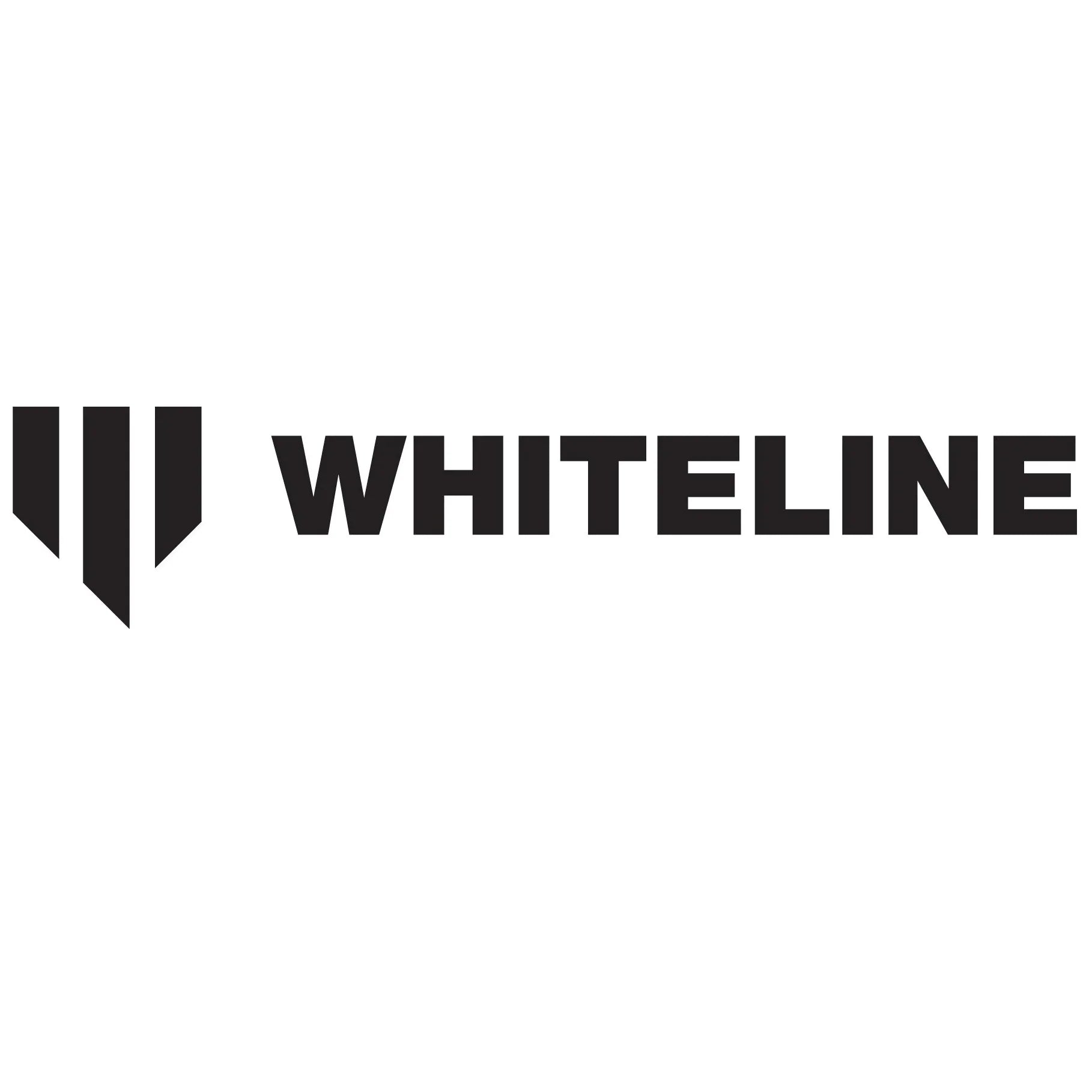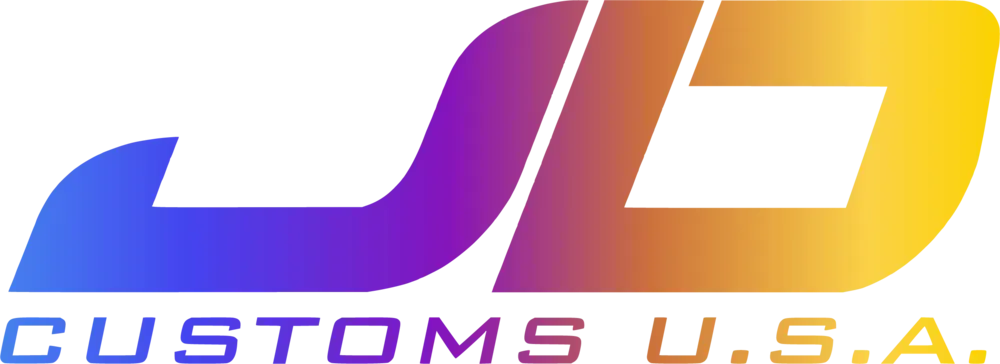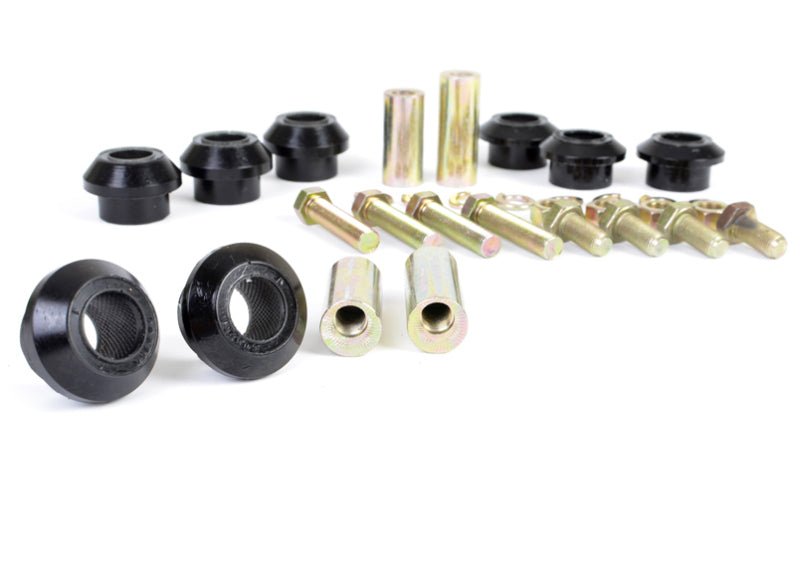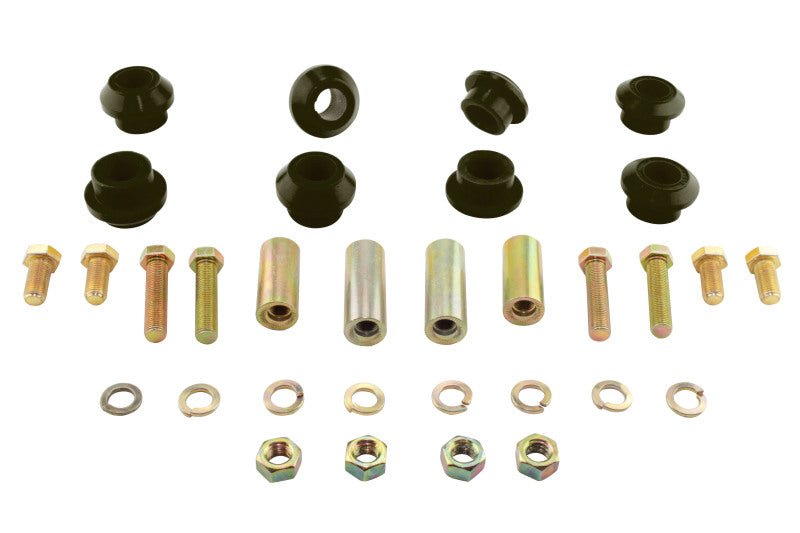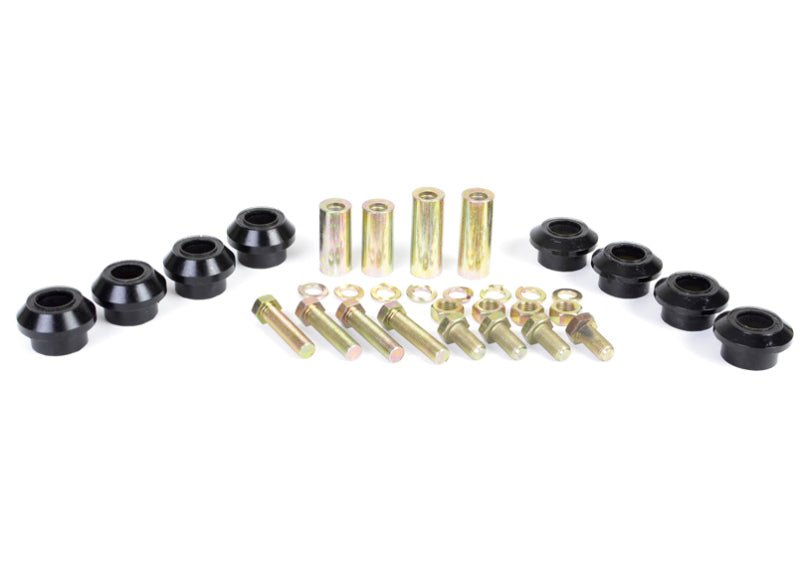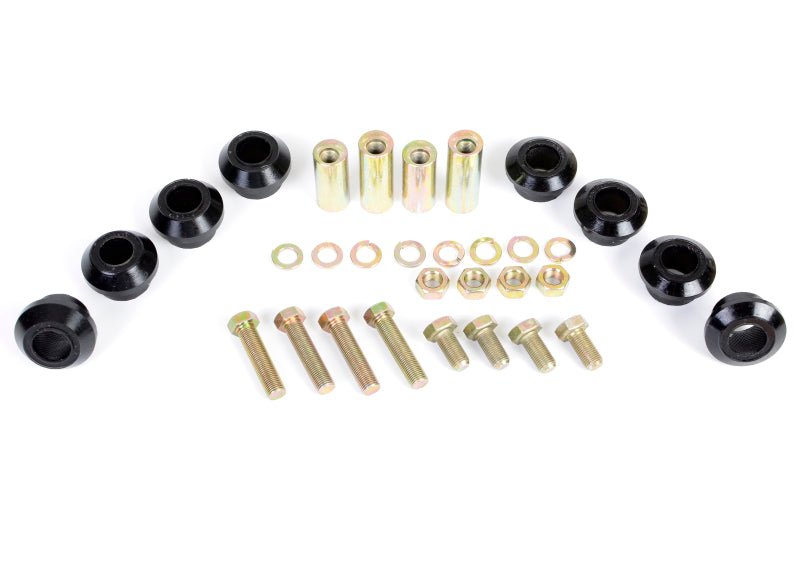Whiteline Rear Camber Kit (Subaru BRZ/Scion FR-S)
*ALIGNMENT SETTINGS, WHAT ARE THE BEST ONES?*
The simple answer is that there is no such thing!
Adjustment:
+/- 0.75 Camber
I know we have probably given more information here than most people wanted, but even this only scratches the surface of the available information and variables that need to be considered when contemplating optimum wheel alignment settings.
The most important thing and something we can not stress enough is the fact that alignment settings are NOT an "absolute truth" that can be held up as an undisputed rule. It is a dynamic process with the "correct value" varying from driver to driver, car to car not to mention the driving environment.
*DYNAMIC & STATIC, WHAT ARE YOU TALKING ABOUT?* Typically used when discussing wheel alignment and geometry. By this, Whiteline are referring to the difference in alignment angles between a stationary and a moving vehicle. That is, the same vehicle will typically have different caster, camber and toe readings when it is moving compared to when the alignment was done in static form in the workshop.
In an ideal world, all wheel alignments would be done on a dynamic wheel aligner but these are expensive and quite rare. This concept is very important, as the only suspension angles that really matter are those present while the vehicle is moving (dynamic). What is done to the vehicles alignment while the vehicle is stationary, (static) is a process of trying to predict the levels of change while the vehicle is moving and setting the angles according to these predictions.
Whiteline puts a great deal of emphasis on the dynamic geometry so rigorous road testing is essential to ensure that the predictions are valid.
* Camber
* Caster
* Toe
* "Anti" Geometry
*CAMBER, WHAT IS IT?*
Camber is the inclination of the wheel from the vertical when viewed from the front. When the top of the wheel leans out you have positive camber, lean in equals negative camber.
Static negative camber is used to compensate for body roll, body distortion and tyre roll under when cornering. Stiffer bodies and tyre sidewalls are in and unnecessary suspension compliance is out. Therefore the previous requirements for large amounts of static negative camber are disappearing. Whiteline strut braces are good for maintaining camber angles under cornering loads as they further minimise body flex.
Its important to highlight the fact that camber settings are ultimately a personal thing. That is, Whiteline can provide an indicative range to start from but the final number will depend on your driving style, average driving conditions, tyre size and many other things. You need to start with a relevant number, then monitor tyre wear and compensate if necessary.
Whiteline have a range of camber adjusting products available to achieve the optimum settings.
